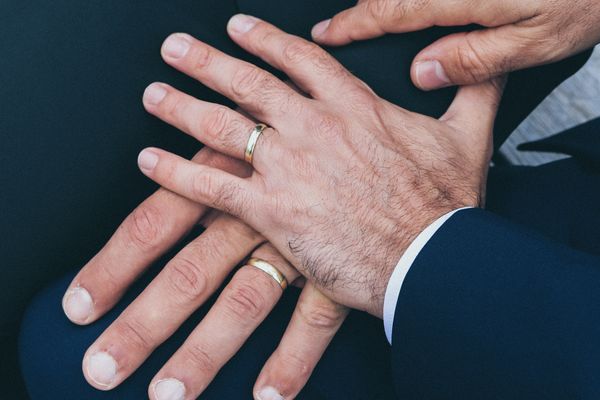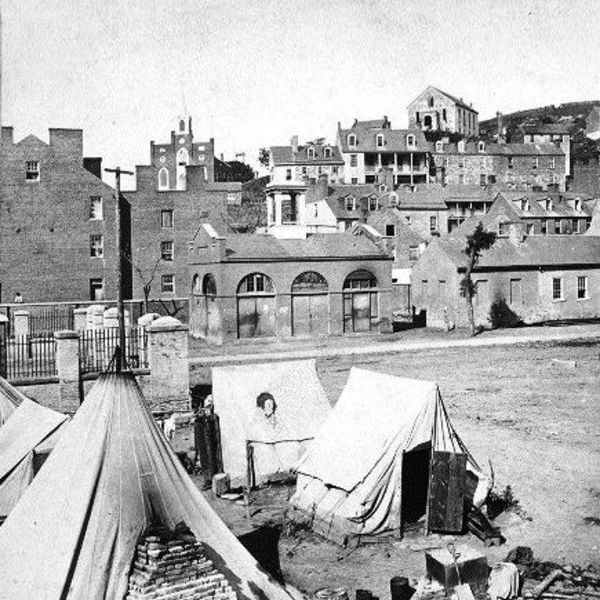As protests for the Black Lives Matter movement continue throughout the United States, many have emphasized the importance of speaking up rather than remaining silent on issues of racism and police brutality. In the Asian American community, in particular, the involvement of an Asian American police officer in the death of George Floyd has opened some discussion on how Asian Americans have contributed to or been complicit in upholding anti-Blackness in the United States.
While I was initially hopeful that the implications of officer Tou Thao's inaction could help to uproot some of the internalized anti-Blackness among Asian Americans and motivate Asian Americans to be more vocal on issues affecting other racial minorities, much of the response I have seen has been extremely disappointing and disheartening.
I've seen my fellow Asian Americans refusing to help, giving excuses for inaction, and even displaying more blatant anti-Blackness. Of course, there are Asian Americans who are actively supporting Black Lives Matter, but I want to address the many who are against speaking out or taking action.
To Asian Americans who still refuse to support the Black community, if your response to advocacy for Asian and Black solidarity is...
"It's not my problem."
The short answer to this is that yes, it is your problem. As a person of color and as an American, it's your problem. While you may think that you have no involvement in anti-Black racism, you're actually more involved than you think.
Seeing Tou Thao's role in George Floyd's death, you might want to dissociate from Thao or say something along the lines of "we don't claim him." But the fact is that his behavior does highlight a larger problem in the way Asian Americans have been complicit in upholding anti-Blackness in the United States.
For example, try evaluating your position in America, and think about how Asian Americans have been used against other minorities as the "model minority." Remember that the model minority myth was known to be used against Black Americans during the Civil Rights Movement, and many Asian Americans have internalized the model minority myth. Ask yourself if you've internalized the model minority myth and what you've done to reject it and break it down — have you spoken out against it? What action have you taken to refute this stereotype, and have you spoken out against being used against other minorities? Are you aware of your role in upholding systemic racism and anti-Blackness, whether that role is active or passive?
The fact is that you're already involved just by being an American and being a person of color.
Furthermore, you should understand that racism is not individual. It's not just one particularly racist person. Racism is a systemic problem: it's built into our society and has very tangible effects on people of color, often placing people of color at a disadvantage. Systemic racism affects all people of color, including Asian Americans. We all have a part that we play in contributing to systemic racism, whether we are aware of it or not. By refusing to speak out and refusing to act, you are choosing to continue contributing to systemic racism.
So, yes, anti-Black racism is your problem.
"What about Asians?"/"Asians face racism too."
I understand that anti-Asian racism during the COVID-19 pandemic has been upsetting. However, these current events and these protests aren't about us. This isn't the time to try to turn the conversation back to ourselves and our own struggles, nor is it the time to co-opt the movement for ourselves. Discrimination against Asian Americans is an important issue to address, but that's not what we're talking about right now.
This also isn't the time to compare the struggles of different racial minorities. I've seen many Asian Americans bringing up Asian American history in attempts to show that racism against Asian Americans is "just as bad." This isn't a competition of who's had the most difficulties. Any racism and discrimination against any minority is a problem.
The bottom line is that we're focusing on racism faced by Black people at the moment.
Remember that their lives are at stake here, and remember how many of them have died unjustly, often at the hands of our own law enforcement.
If, in the face of COVID-19 racism, you've supported actions against anti-Asian racism that have used slogans such as "racism is a virus" or "f*ck racism," then why aren't you seeking to fight all racism?
"Where was this energy when Asians were being discriminated against?"/"Why doesn't anyone care about anti-Asian racism?"
This is similar to the last one — again, it's not about us. I've always taken issue with the underrepresentation of Asian Americans, but this isn't the time or place to be bringing this up.
If you find yourself looking at Black Lives Matter protests and immediately thinking, "No one cared this much about Asian Americans," then you're once again turning the conversation to yourself. You should also question why images of people protesting for the rights of Black people cause you to draw these comparisons. Is your response the result of internalized and subconscious anti-Blackness? Take a look at your response and ask why you're bordering on referring to the outcry against the deaths of Black people as a negative.
Instead of comparing, try supporting the Black community. If you know that the way they've been treated is wrong, then the media attention that they're receiving should be a positive.
Additionally, while you're asking people "Where was this energy when..." I do have to pose my own question: where was your energy? Make sure that you're not just deciding to bring these issues up as soon as you see Black people finding success in raising awareness. If in the future, you want the same attention for Asian American issues, then consider organizing later on rather than just making comparisons or tearing down the efforts of Black people. You can support and put energy into supporting both the Black community and your own community.
The fight against anti-Black racism does not devalue or take away from our struggle as Asian Americans. If you're concerned about anti-Asian racism, you should be concerned about anti-Black racism as well.
They're more connected than you think. As I've stated before, systemic racism affects all people of color. Anti-Black and anti-Asian racism are both products of a racist system.
"What have Black people done for Asian Americans?"/"When did Black people speak up for Asian Americans?"
This mindset isn't productive at all. If we just sit around waiting for someone to make the first move, how can we expect to get anything done?
You should also try asking yourself why you expect something in return for speaking up. If you know that events such as George Floyd's death are unjust, why are you hesitating to act? Why do you need to gain something, and why do you think Black people have to owe you something? Having this mentality really shows how much you actually care about racial injustice, and, honestly, it's a little selfish for you to think that it's somehow "not worth it" to speak up because you think Black people won't do the same for you. If you really think that the treatment of Black people is wrong, say it.
Show that you care. Don't wait for some sort of personal benefit or a pat on the back.
"But Black people are racist towards Asians."/"Black people did __________ to Asian Americans."
Don't generalize all Black people. I'm sure you don't like it when people generalize all Asians.
If you're insistent on thinking that all Black people are racist against Asian Americans, maybe consider that there's also plenty of anti-Blackness in the Asian American community. Let's talk about Soon Ja Du, who shot and killed 15-year-old Latasha Harlins prior to the LA riots after incorrectly suspecting that Harlins had stolen from her shop — and served no jail time. Let's talk about how Akai Gurley was shot and killed by Officer Peter Liang in 2014. Let's talk about Tou Thao, who watched and heard George Floyd say, "I can't breathe" and chose to turn away and do nothing. Do you want all Asian Americans to be associated with all of these people? Then don't do the same to Black people.
Don't treat Black people as a monolith without also acknowledging the anti-Blackness that exists in the Asian American community.
Think about how these generalizations that you've made might indicate some internalized anti-Blackness in yourself -- why are you making these assumptions? -- and work to both break down your own prejudices and build solidarity with Black people.
* * *
These protests and the injustices faced by Black Americans are everyone's problem.
We're all involved, and we all have a part to play, especially in either opposing or upholding systemic racism. Again, racism is not individual. Living in America, you need to evaluate your position and take a closer look at how you might have unknowingly contributed to systemic racism and benefited from anti-Blackness.
As Asian Americans, we need to look at how the model minority myth has afforded us some privileges.
Yes, we're still a minority and we still face racism, but we've also had a role in upholding and perpetuating anti-Blackness. Look at how many Asians also claim to be apolitical. This is just another sign of privilege, as compared to people who can't afford not to be invested in politics. Of course, I'm not placing full responsibility on Asian Americans, but I believe that the Asian American community has the power to contribute to actual, structural change.
If you're still opposed to supporting Black people, consider Tou Thao again. Technically, Thao didn't do anything, but in his inaction, he was absolutely complicit in George Floyd's death. By staying silent, by claiming that it's not your problem and you don't need to get involved, and by remaining apolitical and complacent, you're only contributing to the problem. Tou Thao might have just been one person, but he's an indicator of a larger problem existing in our community.
Take the time to speak up for everyone, not just yourself. If we work together with the Black community and show solidarity as fellow people of color, we can begin to fight the systemic racism that has marginalized all people of color. Right now, that starts with taking action against the systemic racism that affects Black Americans.





















